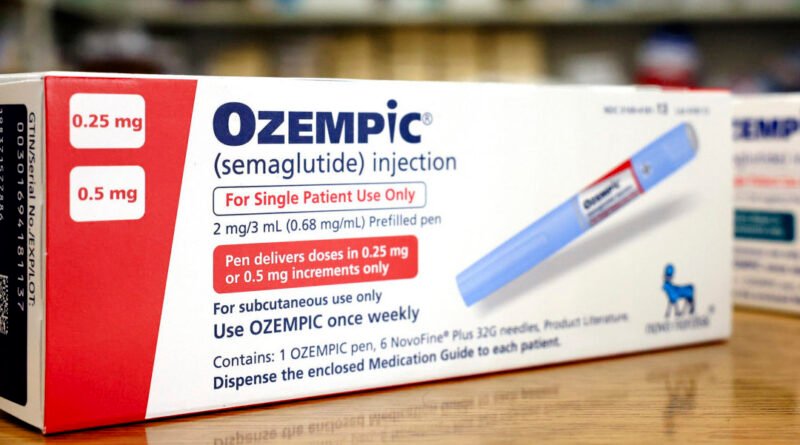Pharmacists Warn about Counterfeit ‘Weight Loss Injections’
When it comes to weight loss drugs, the NHS is in line with advice from the WHO. However, studies have shown that genuine weight loss drugs can come with a variety of potential unpleasant side effects.
Pharmacy leaders are cautioning against purchasing fake weight-loss jabs, which are easily found online, as shortages of Ozempic are expected to continue into the next year.
Ozempic is currently only available on the NHS for individuals with type 2 diabetes, while Wegovy can be prescribed for weight loss through specialist services for those with a BMI over 30 and at least one obesity-related health condition.
Despite these restrictions, “skinny jabs” can be readily obtained online, particularly through social media platforms where they are heavily endorsed by influencers and celebrities who share their weight loss success stories after using these self-injectable drugs.
The National Pharmacy Association (NPA) has raised concerns about a potential rise in the unlicensed sale of medication online, with people buying Ozempic and Wegovy from unauthorized sellers.
Pharmacists in the UK are facing a shortage of Ozempic due to high demand and off-label prescriptions for weight loss.
Sales Expectations
Novo Nordisk, the manufacturer of Ozempic and Wegovy, is expected to report sales nearing £7.7 billion in the second quarter of 2024—almost double that of the same quarter in 2023.
The NPA is advising patients to consult with their pharmacist or GP instead of purchasing medications online from unregistered and unregulated sellers in the UK.
The NPA also warned that difficulties in obtaining Ozempic are likely to continue into the following year.
Chairman of the NPA, Nick Kaye, expressed concerns about the potential for an increase in unlicensed online medication sales due to current shortages of essential medications.
Kaye pointed out that while Wegovy stocks are relatively stable for now, fresh supplies of Ozempic are not expected until at least December 27.
In January, the Department of Health and Social Care advised healthcare providers against prescribing these drugs off-label for weight loss and emphasized that existing stock should be preserved for diabetes patients.
Off-Label Prescribing
Kaye highlighted concerns about off-label prescribing and the presence of counterfeit medications in the supply chain, urging caution when seeking out these drugs.
He clarified that the NPA is not advocating for a ban on all online sales but is pushing for the reinstatement of rules that require a public list of regulated online UK medicine sellers—an initiative eliminated post-Brexit.
It is advisable to check if online providers are registered and regulated by the General Pharmaceutical Council or Pharmaceutical Society of Northern Ireland.
In June, the World Health Organization issued an alert regarding fake semaglutide stocks detected in various countries, including Brazil, the UK, and the US.
Although genuine weight loss drugs have their benefits, they are not without side effects. Reports from the US Food and Drug Administration indicate instances of accidental overdoses and severe side effects like nausea, vomiting, and gallstones.
The MHRA recently approved the use of Wegovy to reduce the risk of heart problems in obese adults, expanding the drug’s application. Additionally, a trial at Imperial College found that the drug could potentially help delay dementia onset, though further studies are needed for confirmation.
PA Media contributed to this report



